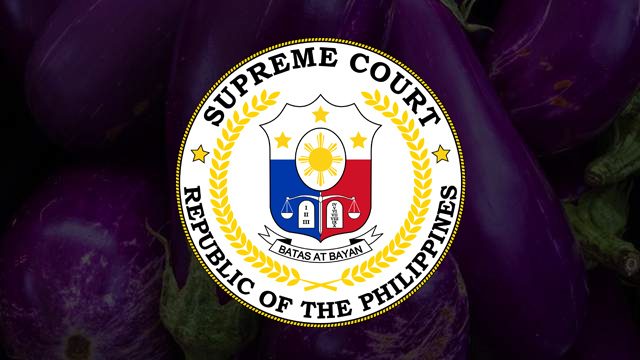SUMMARY
This is AI generated summarization, which may have errors. For context, always refer to the full article.

MANILA, Philippines – A group of agricultural biotechnology students is urging the Supreme Court (SC) to reconsider its decision to stop field testing for Bt (Bacillus thuringiensis) talong (eggplant) and other genetically modified organisms (GMOs).
In a statement on Wednesday, December 30, the University of the Philippines League of Agricultural Biotechnology Students (UP LABS) said the SC ruling would adversely affect modern biotechnology research and the agricultural industry.
Earlier this month, the SC upheld the decision of the Court of Appeals to stop field trials for Bt talong, citing the precautionary principle and noting the lack of consensus among scientists regarding the safety of the genetically modified eggplant.
But UP LABS said the principle cited by the High Court was “unfounded” because it was based on “a misnomer that only naturally-produced food are safe, whereas those manipulated by man are assumed to be dangerous.”
“We are firmly convinced that the precautionary principle isn’t in favor of any scientific advances that are being pushed in our country, since we all know that everything we do involves risks and the only way to know that something is safe is through tests and studies,” UP LABS said.
The group added: “We stand firm that our scientists, researchers, and regulators are conducting the field trials in good faith. We salute our scientists for investing their time and efforts in advancing Philippine Agriculture through modern biotechnology, and we pray that these may not be put to waste.”
Consequences
In its statement, the student organization appealed to the High Court to “reflect on probable overwhelming consequences for the affected sectors.”
The group pointed out that of the 3 countries that started developing the Bt eggplant almost simultaneously – India, Philippines, and Bangladesh – only Bangladesh has benefited from the genetically modified crop, with no reported incidents of harmful effects to humans and the environment.
“Bangladeshis benefit from the 70% to 90% reduction in insecticide use, consequently increasing the net income of their farmers – the true purpose of developing Bt crops,” the group said, citing findings from non-profit group International Service for the Acquisition of Agri-biotech Applications.
The High Court’s December decision also declared null and void the Department of Agriculture’s Administrative Order No. 08, series of 2002, saying that the order lacked the minimum safety requirements under Executive Order 514.
But UP LABS said the DA order was a “workable yet highly monitored protocol for processing products of modern biotechnology,” adding that its nullification might “decelerate agricultural development.”
Aside from affecting modern agricultural research, UP LABS also said that the SC order may discourage the youth to take up courses in the specialized sciences because of the lack of institutional support. – Rappler.com
Add a comment
How does this make you feel?
There are no comments yet. Add your comment to start the conversation.